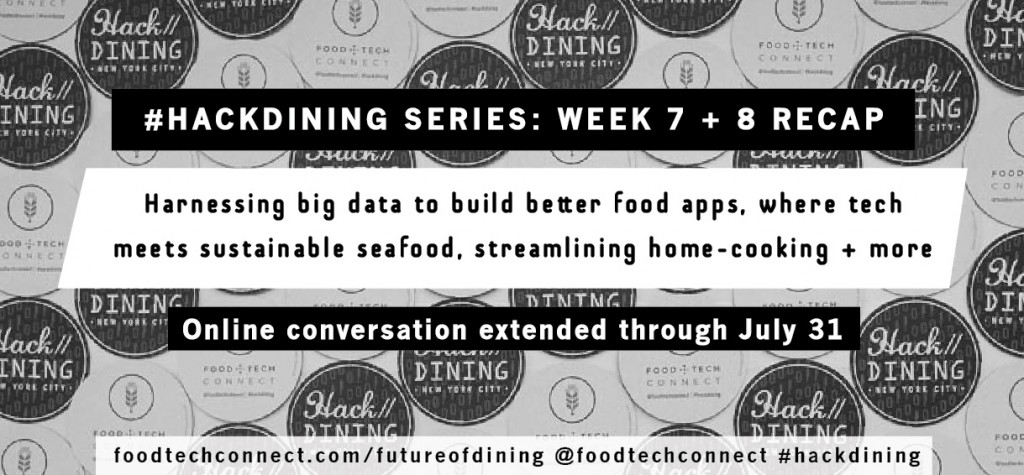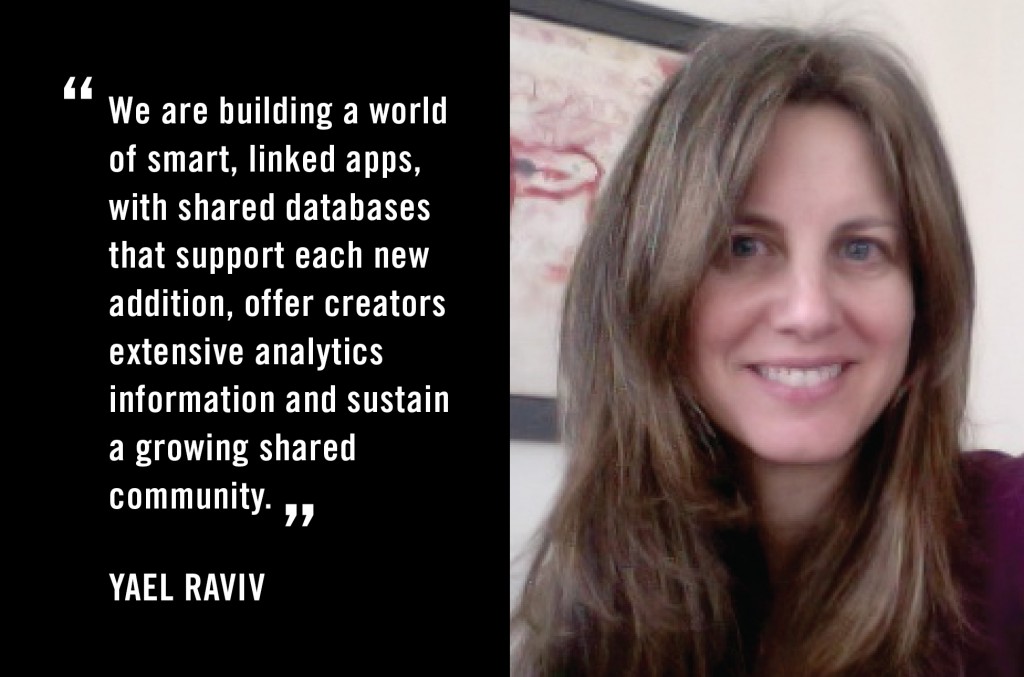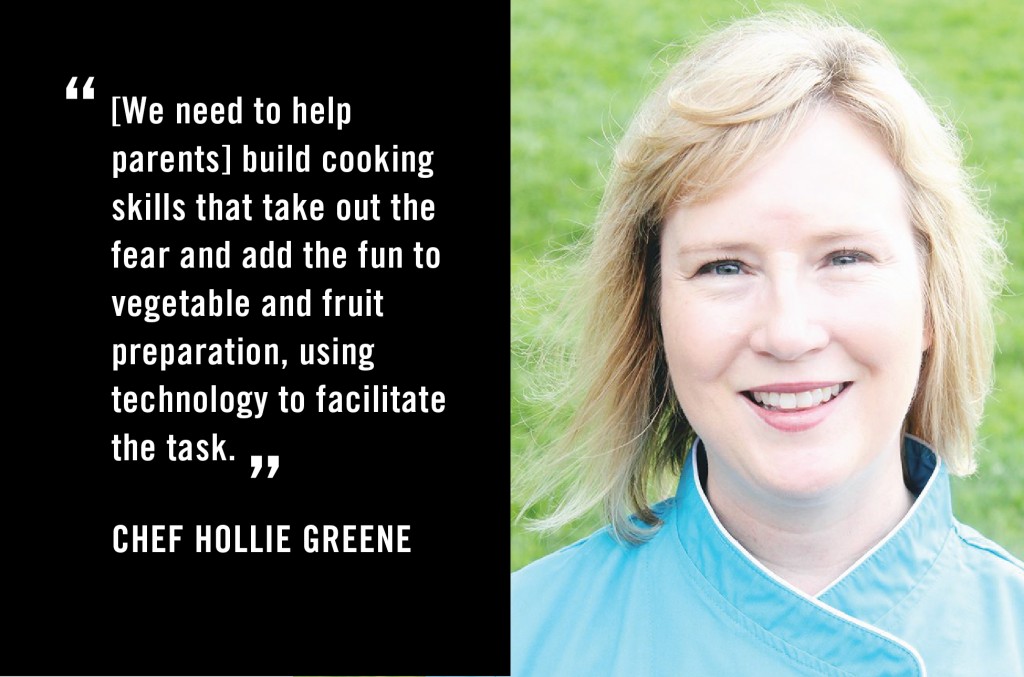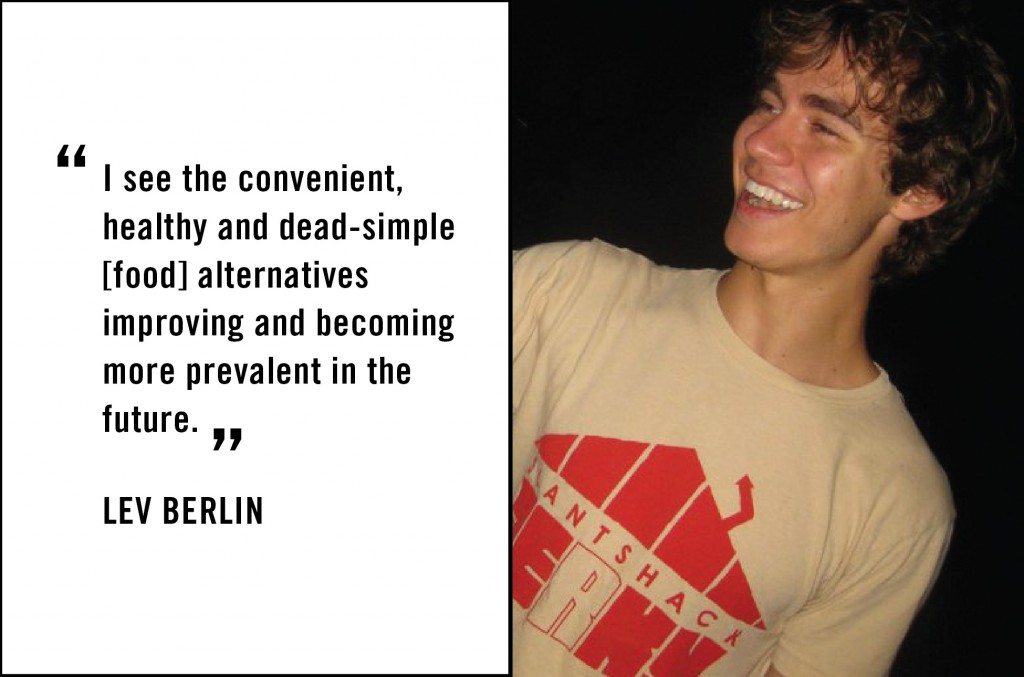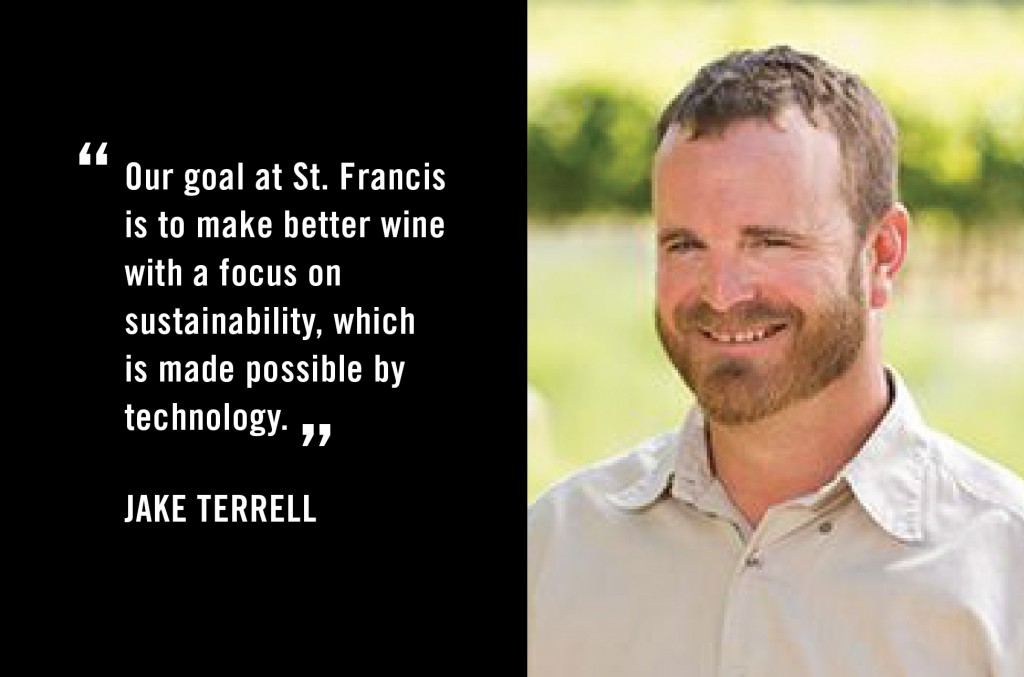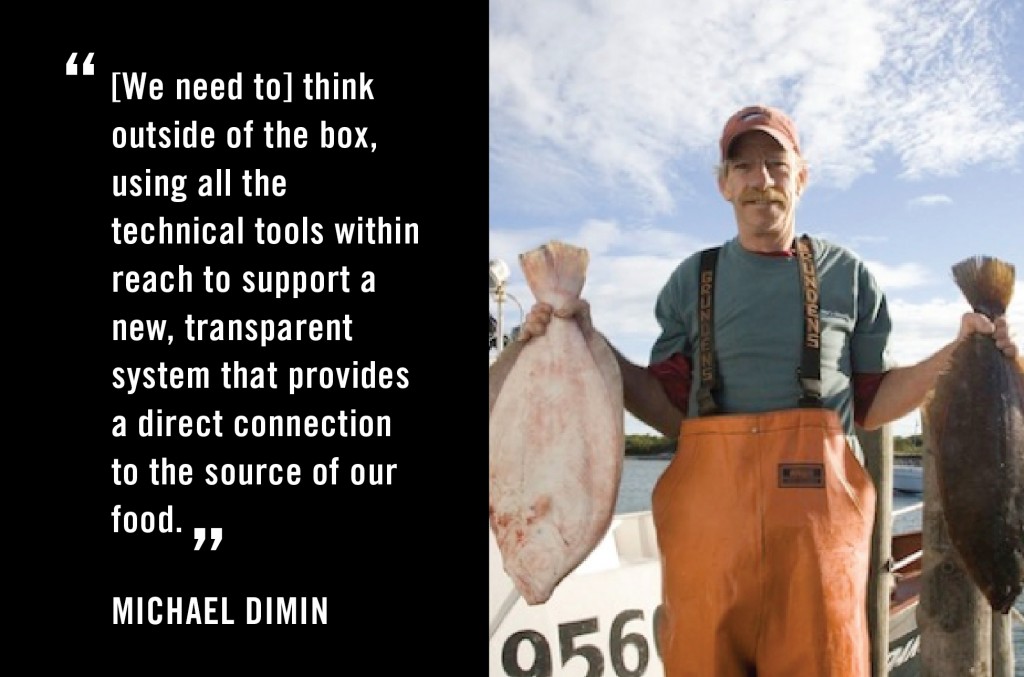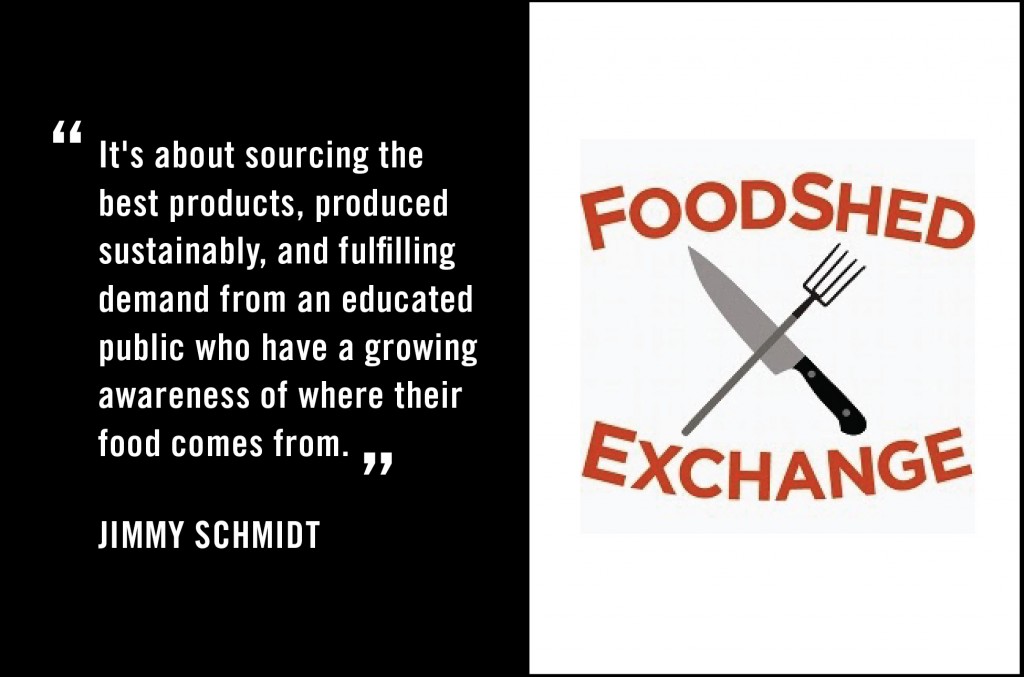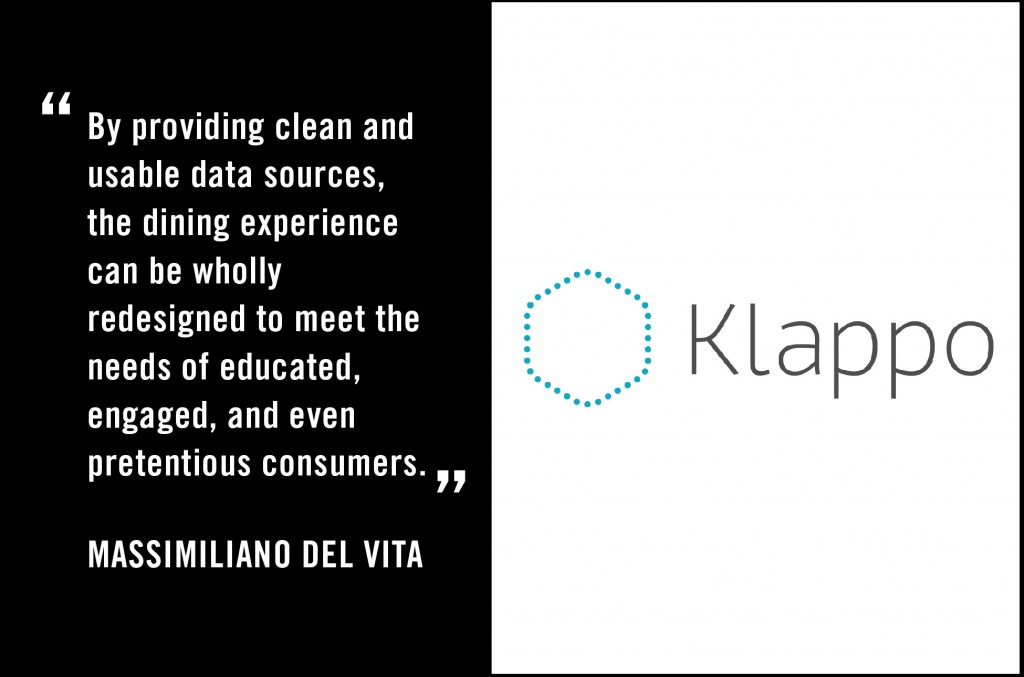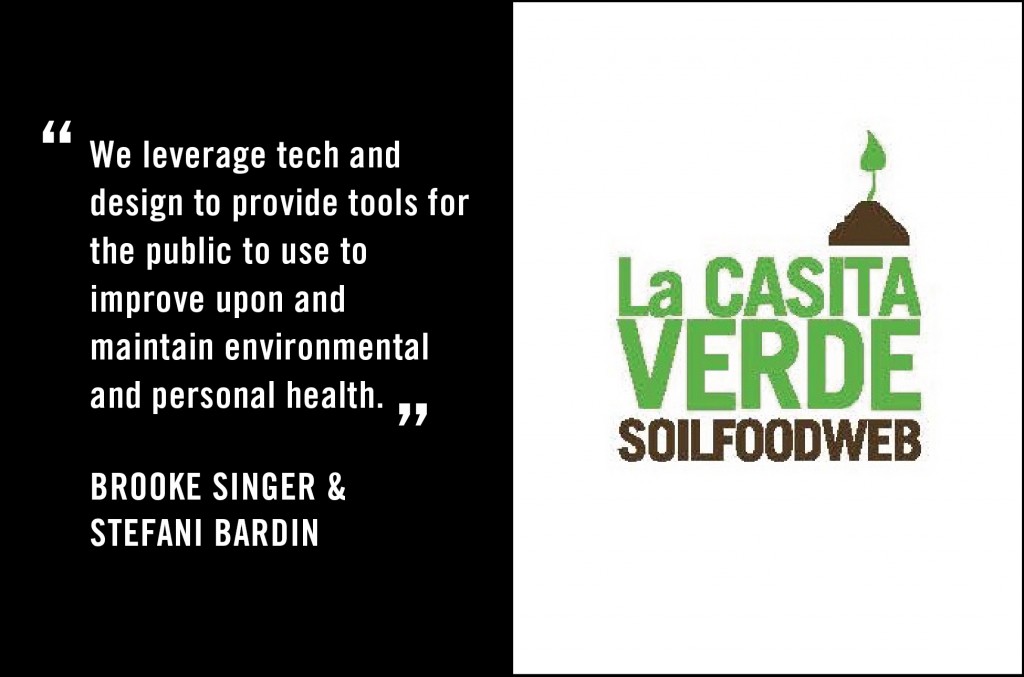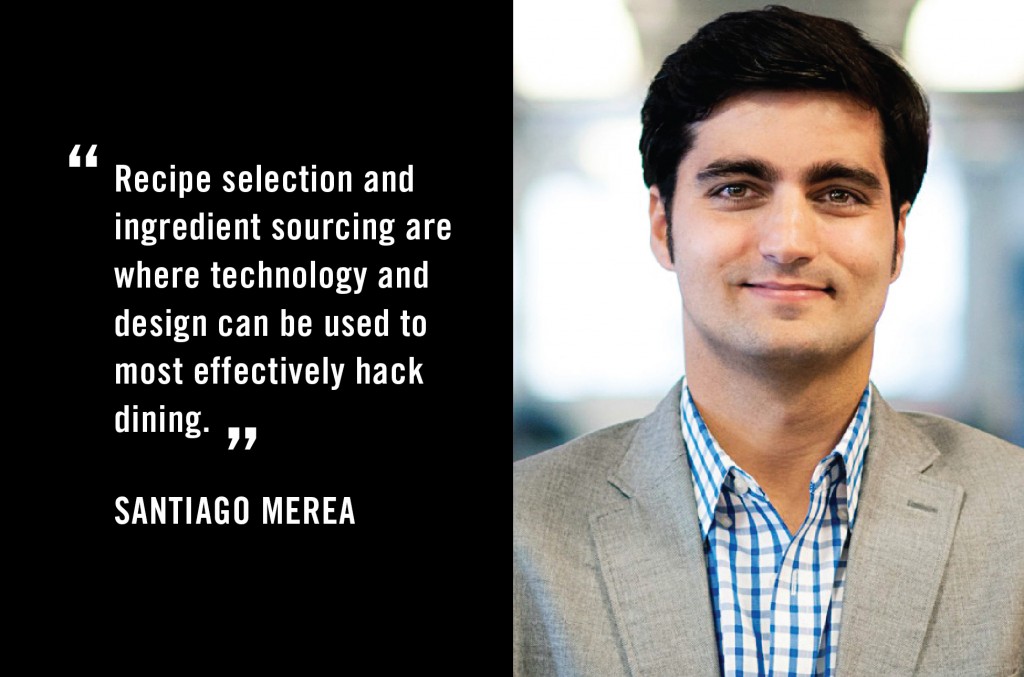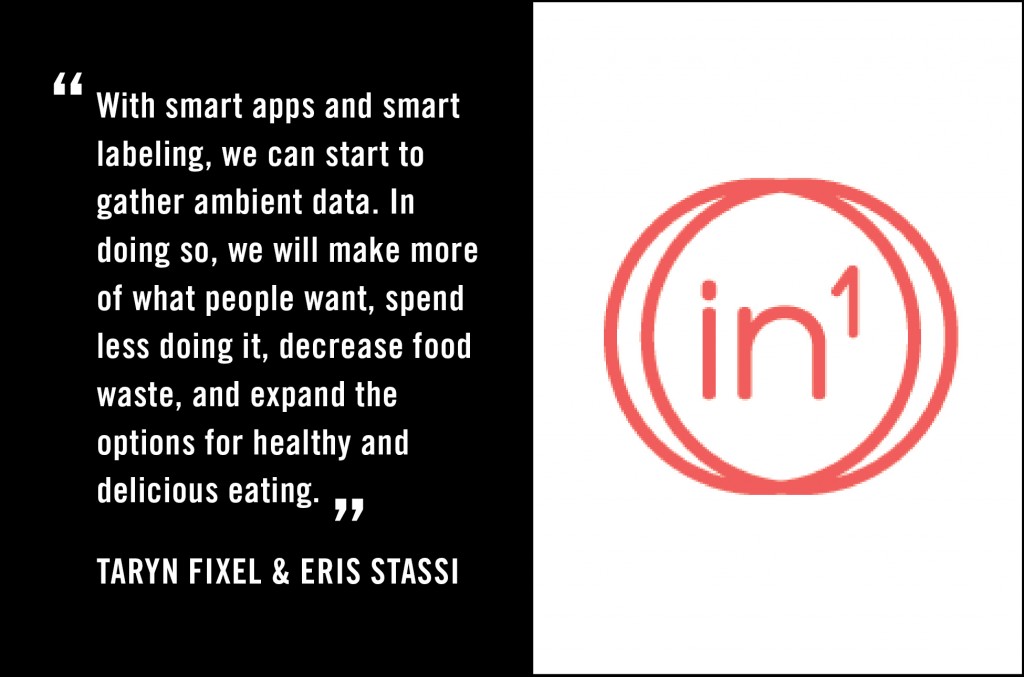Weeks 7 and 8 of our future of dining series were chock-full of thought-provoking submissions covering everything from streamlining home-cooking to bringing tech to wine making. Klappo dives into how we can harness big data to build better health and wellness apps, Sea to Table gives us an inside look at how it’s using tech to grow the sustainable seafood movement and Look & Cook envisions a community of smart, linked cooking apps, to name a few.
Don’t miss our roundup of posts from the last two weeks below, complete with nifty quote images for your viewing (and social sharing) pleasure, and have a look at the 40+ (phew) submissions we’ve posted so far here.
________________
Designing Our Way to a Community of Smart, Linked Cooking Apps
Yael Raviv of Kinetic Art envisions a world of smart, linked cooking apps that use a shared database to making food apps more financially sustainable.
Making Healthy Home-Cooking Easy, Affordable & Accessible
Chef Hollie Greene wants to get people cooking more healthfully. She’s using technology to help families learn how to cook meals with more veggies.
Jetsons-esque Products like Soylent are the Food of the Future
Pills and shakes won’t replace food all together, but tech and design will help alternatives like Soylent become more mainstream in the future of food.
Sustainable Wine Making & Technology: The Perfect Pairing
St. Francis Vineyard shares how it uses data and technology to improve vine health and make its wines more sustainable.
How Sea to Table Is Using Tech to Grow the Sustainable Seafood Movement
Founding Director Michael Dimin explores how tech is helping chefs and eaters from across the country begin to support independent fisherman and sustainable fisheries.
Bridging the Gap Between Chefs & Sustainable Producers
Julie Ann Fineman chronicles FoodShed Exchange’s farm-to-fork launch dinner and how it exemplifies the platform’s goal to connect chefs with sustainable suppliers.
Harnessing Big Data to Build Better Food & Wellness Apps
Klappo looks at how we can leverage semantic data to create food and wellness apps that help consumers truly understand what is in their food.
Using Tech to Cultivate Community & Improve Environmental Health
Brooke Singer and Stefani Bardin of La Casita Verde say using tech to build better food systems and informed communities, will improve environmental and public health.
The Orange Chef Co. on Using Tech to Streamline Home Cooking
CEO and Founder Santiago Merea explores how hacking recipe selection and ingredient sourcing can create a healthier, more customizable future for home cooking.
How Food Data is Personalizing the Feedback Loop
Ingredient1’s co-founders believe tech can help food makers better understand customer needs and trends, while making food info more accessible to consumers.

